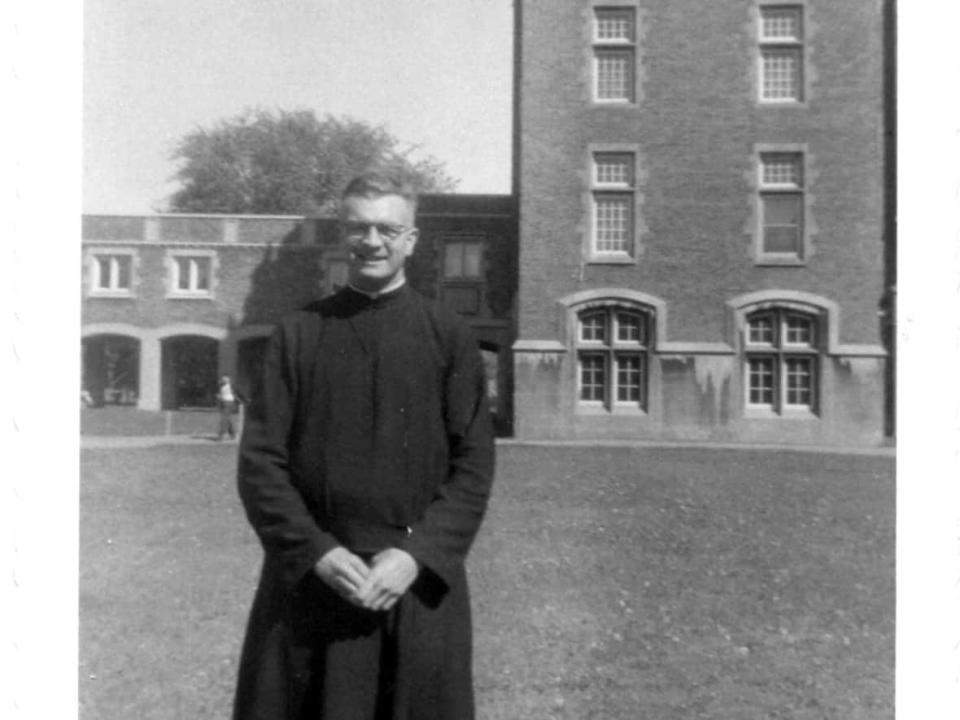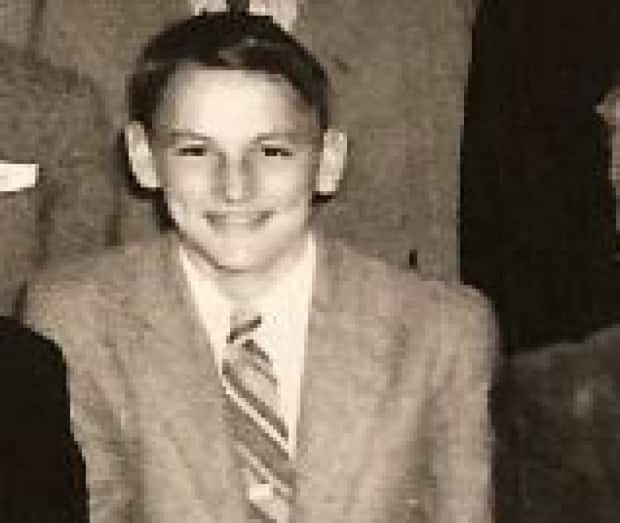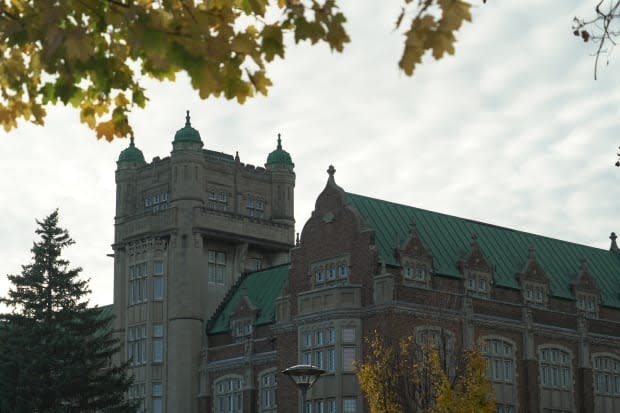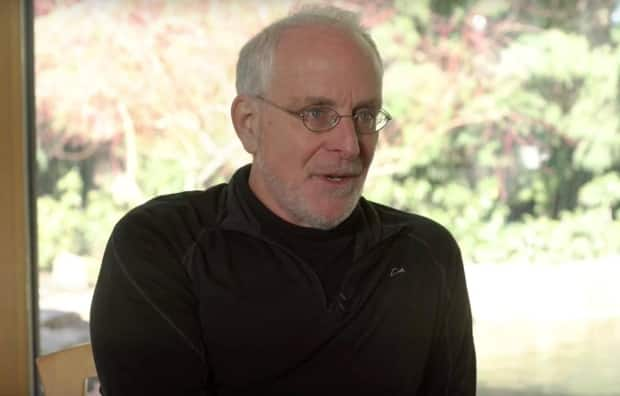In wake of Jesuits' revelations, survivors stress 'this cannot continue to happen'

WARNING: This article contains detailed discussion of the sexual abuse of minors.
The release of a list by the Jesuits of Canada of priests credibly accused of sexually abusing minors has prompted survivors to come forward with their own stories.
The religious order made the list public on Monday, as part of an attempt to be more transparent and accountable.
"This cannot continue to happen," said Bob Lemieux, who was a 12-year-old boarder in his preparatory year at Montreal's Loyola High School in 1957-58.
During that year, he alleges Father George Epoch forcibly kissed him.
"What Epoch did to me has ruined much of my life," said Lemieux, 77, who now lives outside of Kalamazoo, Mich.
"I grew into a man's body and did many things, but mentally, there were a lot of things that I never grew out of."
Epoch is one of 27 priests named by the Jesuits.
The list is the result of an audit the religious order began in 2020 that looked into allegations of abuse by members dating back to the 1950s.

CBC News has not independently verified the allegations against the priests. All but three of them have died.
Along with each priest's name, the list documents each of the places they were assigned to work.
Many of the priests were transferred multiple times, to schools and communities across the country, from Alberta to Newfoundland. More than half had assignments in Quebec and Ontario.
'He was a sick man'
Ron Foreman, who also attended Loyola High School, was prompted to come forward after seeing the publicized list.
He sent an email to the high school early Monday morning to make sure his experience was included in the Jesuit records — and then reached out to CBC.
Foreman said he was living at Loyola's residence in 1956-57 for his preparatory year, when Epoch was his homeroom teacher.
One day, he recalled, Epoch kept him after class alone, closed the door, and pulled the then 12-year-old Foreman onto his lap, where he kissed and hugged him.
"I thought it was very unusual and it made me very uncomfortable," said Foreman, now 78. He did not tell his parents or confide in his classmates about Epoch. After that one incident, Foreman said it never happened again.
In addition to Foreman, CBC News previously reported about two other students at Montreal's Loyola High School who allege Epoch targeted them in 1957-58. Lemieux was one of them.
"He was a sick man and the Jesuits could have prevented a lot of hurt if they'd spoken up," said Foreman.
In a statement Tuesday, Loyola High School said it "applauds" the release of the names as a "step towards healing wounds, but grieves the fact that this list includes the names of Jesuits who were missioned to Loyola High School at some point in their lives."
The school said it now "has strict legal procedures pertaining to the protection of youth and the reporting of a suspected incident of child abuse."
Among Montreal institutions, Collège Jean-de-Brébeuf and Loyola College — which has since been taken over by Concordia University — are also named.
In an email, Brébeuf said it had not been aware of the allegations against three priests who worked at the high school. The statement said Brébeuf is now a secular institution and operates under a different structure.
Concordia University said in a statement it was "disturbing and very sad to see a name associated with us on that list."

Sent to Indigenous communities
Epoch later worked in several Indigenous communities in northern Ontario where he was accused of abusing dozens of children. The Jesuits were involved in several high-profile lawsuits.
Jesse Boiteau, senior archivist at the National Centre for Truth and Reconciliation, said making the names public validates the stories of survivors, many of whom shared their stories at the Truth and Reconciliation Commission.
"This type of information will undoubtedly open up a lot of wounds and we need to make sure that we are here to support them and help them during this time," Boiteau said.
Lawyer Mark Handelman represented about a hundred of Epoch's victims from the Saugeen First Nation or Cape Croker, which is located north of Owen Sound.
The Saugeen First Nation is now known as the Chippewas of Saugeen and Cape Croker is now called the Chippewas of Nawash Unceded First Nation.
Epoch was the parish priest in those communities between 1971 and 1983.
By the time Handelman got involved, Epoch was dead, but he said many of the victims' parents were residential school survivors and have since struggled with addiction and perpetuated a cycle of abuse.
"Mothers sent these children to the priest for protection, not knowing the priest was abusing them. It was a heartbreak," said Handelman.
WATCH | Jesuits of Canada name priests accused of sexual abuse of minors:
As a lawyer, one of the first thoughts Handelman had when he saw the list was concern over how the Jesuits decided which allegations were considered credible.
He questions how many allegations were dismissed.
"How do you deal with that? You've been abused and now you are being told you are not a credible witness?" Handelman said.
He anticipates more lawsuits may be forthcoming and the cost of that litigation may ultimately be what forces the Jesuits to make meaningful change.
Many of the accused priests were moved around to different communities. Although he can't prove it, Handelman suspects the Jesuits were trying to "bury a problem rather than solve a problem."
List intended to expand, Jesuits say
Father Erik Oland, leader of the Jesuits of Canada, was not made available for an interview.
In an emailed response, a spokesperson said the Jesuits are committed to working with police in connection with any past and present cases, and "have fully co-operated with law enforcement."

The spokesperson added that "we do not regard the release of this list as an end, but a beginning of our journey with survivors.
"The list is intended to expand and evolve as new information comes to light."
For his part, Lemieux said he'd like to be compensated for what he went through. He said Oland and an independent investigator for the Jesuits travelled to Michigan earlier this month to meet with him and his family.
"I said very clearly, 'I don't want apologies, I don't want prayers,'" said Lemieux.
Support is available for anyone who has been sexually assaulted. You can access crisis lines and local support services through this Government of Canada website or the Ending Violence Association of Canada database. If you're in immediate danger or fear for your safety or that of others around you, please call 911.

 Yahoo Sports
Yahoo Sports 